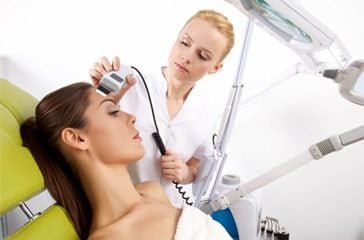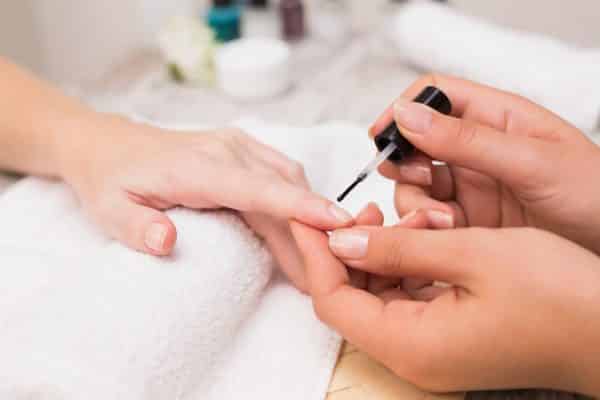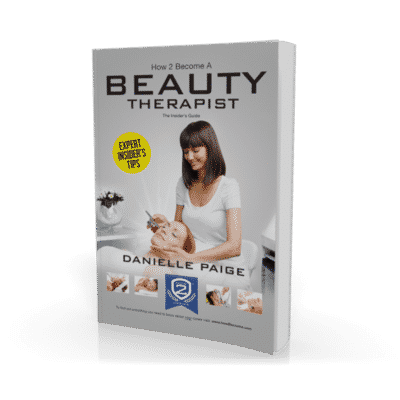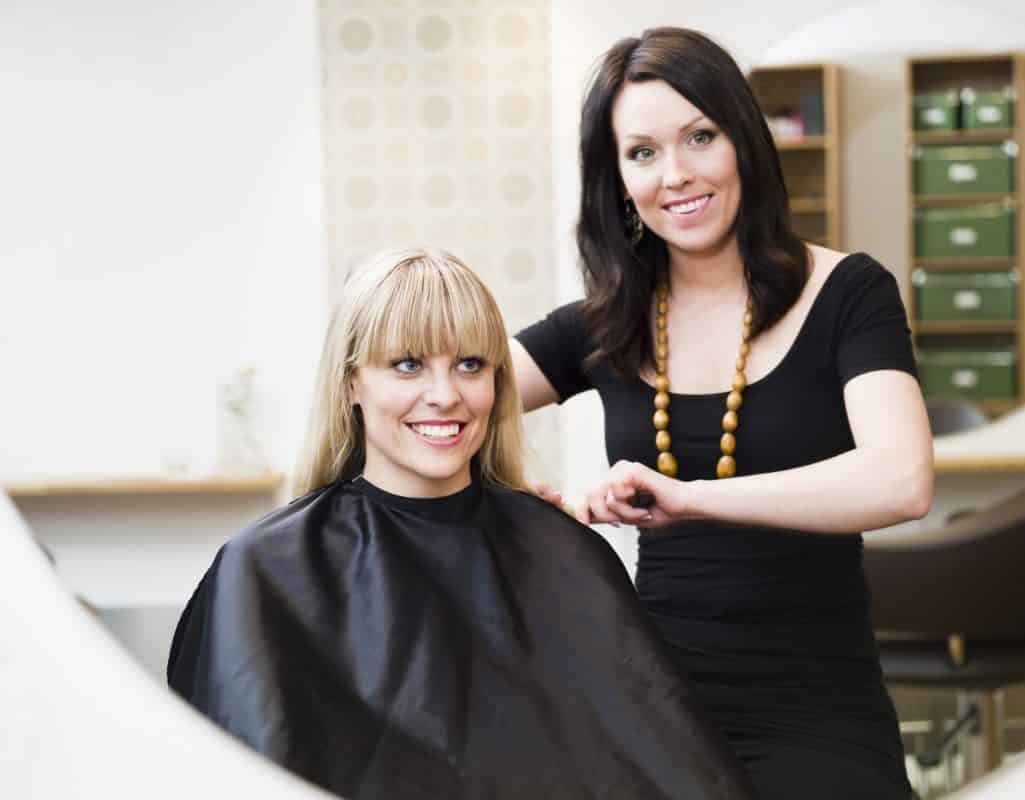If you are looking for a career in the beauty industry, then you might decide to apply for a beauty therapy apprenticeship. This involves going straight from school, into the workplace, and learning on-the-job. By the end of this process, you will have achieved exactly the same results as you would have from a standard college course, but on top of this you will also have valuable workplace experience.
Some salons will have a training scheme, whereby a member of staff will spend 1 day a week of your beauty therapy apprenticeship, teaching you the same anatomical material as you would learn in college. Others may require you to spend 1 day a week in college, and the rest of the time performing practical theory as a junior member of staff. At the end of your apprenticeship, you will sit a very similar examination/series of tests to those we listed in the previous chapter.
Many salons work directly as partners to local schools or colleges, in order to make this transition as smooth as possible. Salons generally look for candidates between the ages of 16-19, with C grades in both Maths and English. If the candidates do not have these grades, they will be required to take part in a separate course alongside their training, to get them to the required level.
There are both advantages, and disadvantages, to choosing a beauty therapy apprenticeship instead of enrolling in a college course.
Advantages to a Beauty Therapy Apprenticeship
- Your learning group will be much smaller than at college, which means you will have more one-to-one time with whomever is teaching you.
- You will earn money, while you learn.
- You will gain crucial industry experience from the frontline of a beauty salon.
- You will increase your employability, both by working with a potential future employer of the salon you are training in; and if you do have ambitions to work independently, will gain contacts and potential clients.
We asked our salon expert, who regularly takes on apprentices at her salon, what she feels the biggest advantage is:
‘I feel that the apprenticeship option makes for a more confident therapist, both socially and professionally. College leavers are very nervous, very slow at treatments and often need training before they can work on clients. I have also found that therapists who took the apprentice option are far more comfortable in retailing products, and don’t feel as if they are pressurising the client to buy.’
Disadvantages to a Beauty Therapy Apprenticeship
- Working straight after leaving school leaves no time for ‘growing up’.
- Often a small group dynamic can cause social issues.
Our resident expert elaborated on what she thinks is the biggest disadvantage of taking on apprentices:
‘I believe the only disadvantage is that after a few months they can be overconfident. You sometimes have to pull them back, as they think they can do more than they are capable of. If they make a mistake, then the salon has to fix it.’

Beauty Therapy Apprenticeship Interview
If your application is successful, you will be invited to an interview with the salon. For apprenticeships, this will take the form of an informal chat, where the salon owner gets to know you and decides whether you are a suitable candidate as an apprentice. If are a younger candidate, you may not have any relevant experience with interviews. The process may be unfamiliar, and extremely daunting. We asked our resident expert, who trains apprentices in her salon, what she thinks makes a good and bad candidate:
‘A good candidate is someone who is on time, well spoken, meets the educational entry requirements, maintains good eye contact during the interview and is well presented. I look for candidates who maintain obvious care of their nails, wear light day make-up and have good personal hygiene. I also love candidates who ask questions, as this shows an interest in both me and my business.
A bad candidate, on the other hand, will have poor time keeping, appearance and communicational skills. Chipped nail polish is a big sign of this. I don’t mind candidates who are shy, but if they can’t hold a conversation with me then they won’t be able to hold a conversation with clients, and that’s fundamental to working in the industry.’
This statement should give you a great idea of what you should, and shouldn’t do, during an interview. But what about what you should, and shouldn’t say? Here’s a few examples:
1. Why are you interested in doing an apprenticeship, instead of going to college?
This is a question you should expect to see in almost every apprenticeship interview you attend. The interviewer is asking for confirmation of the fact that you understand, on a basic level at the very least, the differences between working as an apprentice and taking a college course. The interviewer is also asking you to elaborate on what you feel the benefits of working as an apprentice are, and how this is more suitable for you personally as opposed to going to these to construct your answer.
Sample response:
I’m interested in doing an apprenticeship for a number of reasons. Firstly, I’m someone with a hard work ethic, who is really interested in working within the beauty industry. I feel that learning on the job would be much more beneficial and interesting than attending college. I want to be on the frontline so to speak, and the opportunity to learn directly from professionals such as yourself would be hugely advantageous to my future career prospects. I’d like to work in a salon full time, and the experience this could provide me surpasses anything I believe I could learn within college. I’m really keen to further my employability skills, and I think this is the best way to do it.

2. Why do you want to work as an apprentice for this salon?
This is another, very popular question. Just as they would in a regular job interview, the salon is looking for some confirmation of the fact you have researched them beforehand, and that they have qualities that are attractive to you. Don’t be afraid to flatter the salon here. Use the internet to research particular products, services and treatments that the salon offers, which you can then mention in the interview; ring the salon prior to the interview and enquire as to what services they offer (if they don’t have a website) or even go in and have a treatment. Mention the atmosphere of the salon and the friendliness of the staff as positive reasons for your decision to apply.
Sample response:
Well, there are a number of different things that attracted me to this salon. Aside from the location, as it’s just five minutes away, I know you perform Rose Body and Facial treatments. From doing internet research, and hearing friends and family talk about these treatments, I’m really interested to give them a go. I’m also excited about the idea of performing Electrolysis and Reflexology, both of which I know are offered here at this salon. I’ve been into this salon before, and the staff were always so friendly and helpful; I’d love to be a part of that atmosphere, and hopefully I could bring some new ideas and lots of enthusiasm to the team. My Mum and I are huge users of their products, so it would be great to promote and sell these in the future.
3. What makes you a unique candidate?
This question is essentially asking you to sell yourself, as you would a product in the salon. The asker wants to know the reasons why they should consider you, over other applicants. It is a great question, as it allows you to talk about your strengths as a candidate and why the salon should take you on as an apprentice. Take a deep breath before answering, think about your response and structure it so that the salon understands exactly why you would make an ideal candidate for the apprenticeship. Remember all the positive qualities we listed in the CV, and consider exactly how these can be applied to a role in a beauty salon.
Sample Response:
There are many different qualities that set me apart from other candidates. First of all, I believe my enthusiasm for the role is unmatched. I’m hugely interested in the beauty industry, I subscribe regularly to beauty forums, magazines and websites, and I’m absolutely meticulous when it comes to my appearance. I’d love to use these values within the professional environment, and I think I’d be a great representative for your salon in this respect. Secondly, my teamwork and leadership skills are at an extremely high level. As a competitive sports woman at school, and captain of both hockey and football, I have a fantastic understanding of the unity and co-operation required to work within, and lead a team, and I would use these skills within the workplace.
Lastly, my work experience at Smith Street Salon gives me vital previous experience and knowledge of the work place environment. I can put the skills I picked up from this role to immediate and effective use. I’m someone who really wants to improve, better myself and learn new skills, and this salon would be the perfect place for me to do that.
Products You Might Be Interested In
Written in conjunction with real industry experts, How2Become have produced a groundbreaking and authentic guide on How To Become A Beauty Therapist. Packed with tips on treatment technique, college module guides, interview tips, and even advice on how to set up your own business, this is the ultimate resource for any aspiring beauty therapist.


